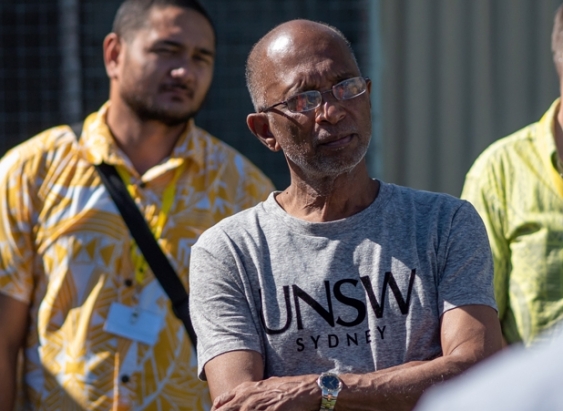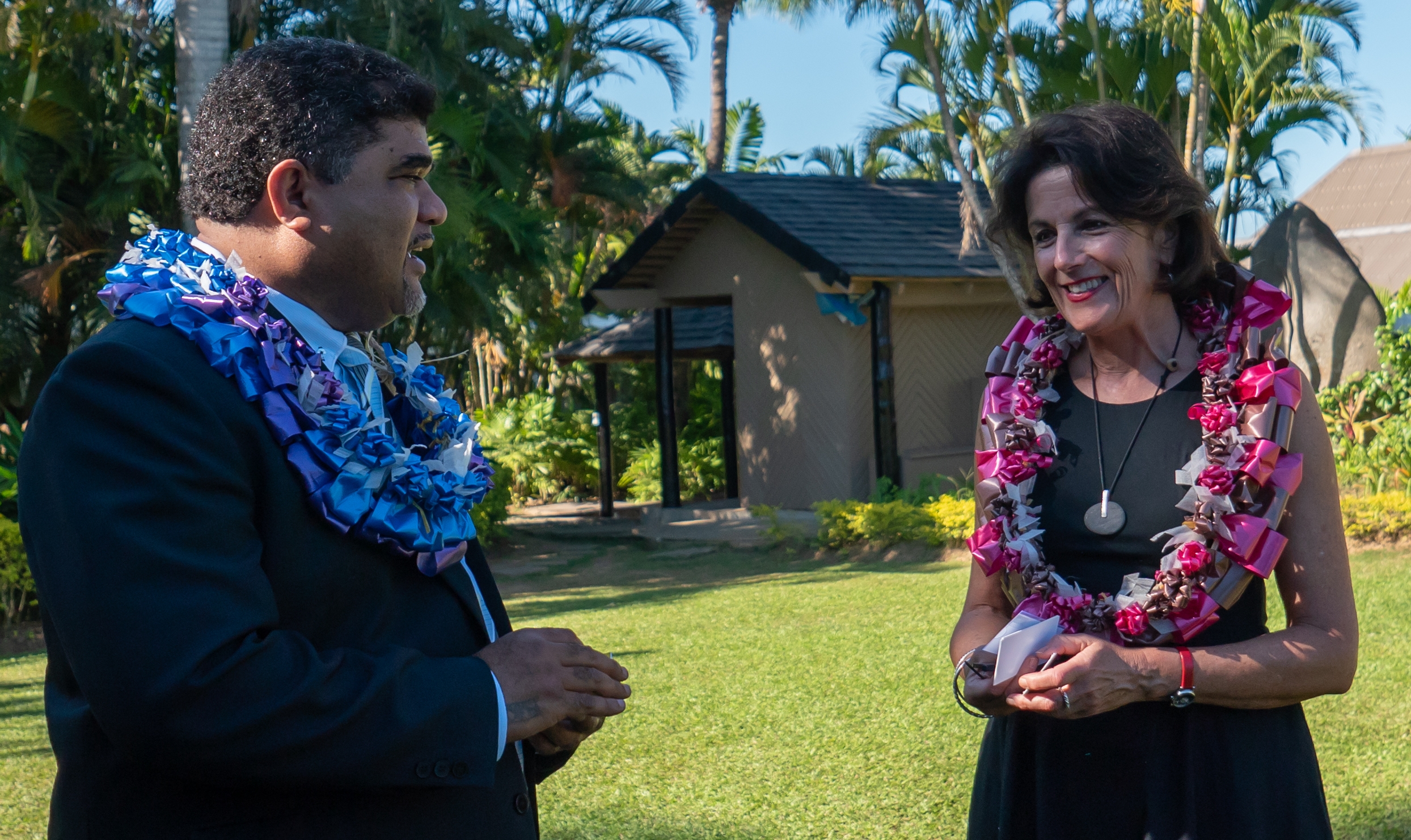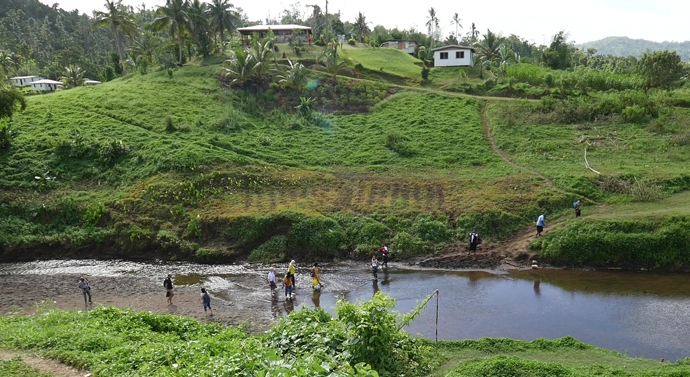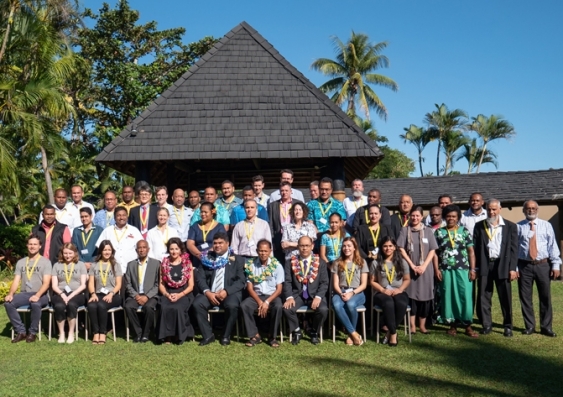Seed funding from the Institute for Global Development (IGD) has enabled UNSW Sydney to join forces with the Asian Development Bank Institute (ADBI) to hold a symposium in Fiji for Pacific Island community members on Capacity Building in Green Infrastructure and Housing for Poverty Reduction.
Since 2016, the IGD has been coordinating and channelling the work of the UNSW community, including staff, students and alumni, to contribute to achieving the UN Sustainable Development Goals. The aim is to develop local capacity in communities of greatest need through teaching, research and collaboration, both in Australia and overseas.
Last year, the IGD provided seed funding to nine projects across the University, including the first phase of a project led by Dr Sarath Mataraarachchi, Senior Lecturer in the Faculty of Built Environment. The objective was to bring together government and NGO representatives, academics, students and community members from all over the Pacific region and Australia to collaborate and learn from each other to build capacity in developing sustainable infrastructure and housing maintenance to improve the quality of life of local communities.

Dr Sarath Mataraarachchi, Senior Lecturer in the Faculty of Built Environment, on a site visit at Namotomoto village in Fiji.
As IGD project lead and symposium co-chair, Dr Mataraarachchi worked with Senior Economist Dr Wawan Juswanto from the ADBI to identify and invite participants across the region as well as representatives from NGOs. IGD and ADBI then partnered with the World Bank, the University of the South Pacific, the University of Fiji and Plan International to hold the symposium in Nadi, Fiji, from 25 to 27 June. Academics and industry practitioners from Australia also travelled to Fiji to present at the symposium.
In her welcome address, Professor Helen Lochhead, Dean of the Faculty of Built Environment, welcomed the opportunity for UNSW to work with the Pacific Island nations.
“This is the first major collaboration between Pacific Island nations and the Faculty of Built Environment, and hopefully it will be long and multifaceted,” she said.
“To understand the effectiveness of any action, whether it’s an infrastructure project or a policy, you need to collect data and analyse it to make sure it’s effective in the long term. I think there’s opportunity for research based on good robust data collection and analysis, and we can involve students from the University of the South Pacific and the University of Fiji and local stakeholders.
“Also, we could run short courses in built environment disciplines or look at student exchange programs.”

Mr David Kolitagane, Permanent Secretary on behalf of the Honourable Parveen Bala Kumar, Minister for Local Government, Housing, Environment, and Infrastructure, with the Dean of the Faculty of Built Environment, Professor Helen Lochhead.
Infrastructure challenges in the Pacific Islands differ from village to village, district to district and country to country. They range in scale from roads, bridges, submarine IT cables and waste management to housing with basic plumbing like sinks and tap fittings, and enough water for flushing toilets to operate – and they all need to be cyclone resistant.
Land tenure systems across the region are complex. Some countries share building codes as well as the construction-related skills needed to develop and maintain infrastructure.
Covering the diversity is an ambitious plan, and capacity building is key.
“There were a couple of reasons why we wanted to bring every Pacific country to the symposium,” Dr Mataraarachchi said. “One is for the representatives to understand each other’s challenges in achieving sustainable infrastructure, adequate housing and poverty reduction. Secondly, we need to work as a group, because these countries are small, and the scale isn’t there.”
As well as presentations about frameworks, assessment tools and accreditation, the formal program included practical workshops where participants identified their country’s most pressing infrastructure needs and their major obstacles. They then used the outcomes to build business cases, applications for funding and submissions. The focus was on improving community wellbeing using modern know-how and technology while not forgetting traditional knowledge and ways of living.

UNSW staff and students make their way to Balekinaga village for one of the site visits.
Site visits to a village, town and informal settlement in Nadi following the Housing for Health presentation enabled symposium members to see first-hand how the proven model links household health to basic infrastructure.
“I strongly believe we achieved the objective we set out to achieve,” said Dr Mataraarachchi. “We wanted to show how planning can play a critical role in infrastructure development. And, as some of the public servants and community members said, for the first time, they understood how many aspects and elements are involved in infrastructure planning, and particularly in sustainable infrastructure planning. It’s an iterative process not a linear one, and it’s multidimensional because infrastructure is linked to everything we do.”
Four UNSW students were selected from the Master’s program in Sustainable Built Environment to travel to Fiji and participate in the symposium, facilitating and acting as scribes in the workshops.
Elizabeth Londoño from Medellín in Colombia, Jessica Baldwin from Sydney, Deeksha Nathani from Mumbai and Maria Teresa Verde Pujol from Madrid saw theory come to life as they listened to the participants’ infrastructure issues and they had the chance to share their own experiences.
The next phase of Dr Mataraarachchi’s project has two elements.
“The first is to engage with two communities – one in the Solomon Islands and one in Fiji – to demonstrate what we have established at the symposium. We will use those demonstrations to fine-tune the model suitable for the Pacific Islands to improve community infrastructure, health and lives.
“The other is to work with public servants – the people who make decisions in governments – to develop their capacity so that they understand the issues and can negotiate with consultants, NGOs and multilateral banks to get the outcomes the countries want, not what the consultants want.”





